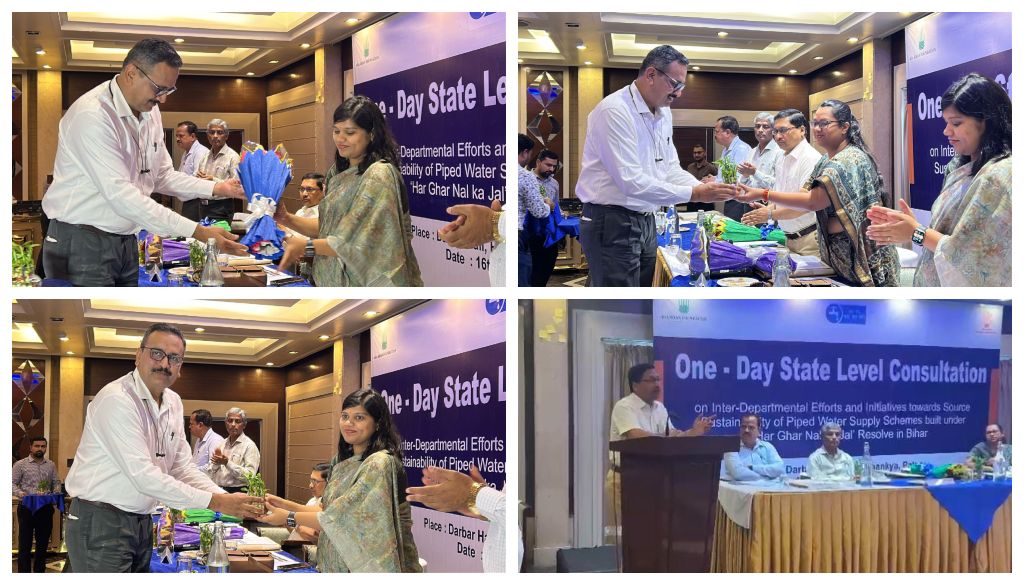PHED Principal Secretary Calls for Unified Action to Strengthen Drinking Water Supply in Bihar

Patna: A workshop held in Patna on Wednesday brought together senior government officials, NGO representatives, and development professionals to discuss strategies for strengthening drinking water access under the Har Ghar Nal Ka Jal Yojana. The event, chaired by Pankaj Kumar, Principal Secretary, Public Health Engineering Department (PHED), focused on improving coordination between key departments such as PHED, MNREGA, and local bodies to deliver clean drinking water more effectively across the state.
“The provision of safe drinking water is not just a development programme but a shared national commitment,” said Kumar, highlighting the broader vision of the Nal Jal Yojana. He noted that consistent cooperation among departments would be key to meeting the needs of both rural and urban communities.
Participants discussed various approaches to improve the long-term sustainability of water supply infrastructure. One recurring theme was the observed decline in groundwater levels in some areas due to high reliance on borewells. Civil society representatives recommended integrating rainwater harvesting and groundwater recharge techniques into ongoing rural schemes.
The Principal Secretary also suggested scaling up the construction of ponds, check dams, and water conservation structures under MNREGA to complement household water supply efforts and promote local water security.
Organised by AGA Khan Foundation, the seminar facilitated an open exchange of ideas, with stakeholders agreeing on the need for proactive, collaborative action. In his concluding remarks, Kumar encouraged all participants to view water conservation as a shared responsibility. The event concluded with a collective pledge to support sustainable water practices through better planning, execution, and community engagement.







